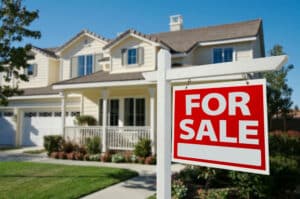Moving to a new area comes with its fair share of excitement and challenges, especially when joining a new neighborhood with your loved ones. It’s like beginning a new chapter where you meet new people, explore new places, and create new memories. Undoubtedly, getting a fresh start feels like a dream, so selecting the perfect neighborhood for you and your family is crucial before transferring permanently.
Whether you’re considering the bustling streets of a big city or the tranquil paths of a suburban locale, it’s only wise to evaluate a neighborhood thoroughly before finalizing your decision. This is especially true if you’re eyeing the diverse and historically rich St. Louis neighborhoods, where each area offers a unique living experience.
This article lists several factors to consider when evaluating a neighborhood. Continue reading and learn more!
- Safety and security
Knowing whether a neighborhood is safe and secure is crucial in evaluating a potential new home. While safety can be somewhat subjective and vary based on personal comfort levels, there are several objective measures and strategies you can use to assess neighborhood safety:
- Online crime maps: Websites like CrimeReports and the National Sex Offender Public Website provide crime data and maps for many locations.
- Local police department: Many police departments publish crime statistics on their websites. You can also contact them directly for information about specific areas.
- Community feedback: Speaking with residents can give you insights into the safety of the neighborhood and any concerns they might have.
- Online forums and social media: Many neighborhoods have groups on social media platforms where you can find discussions about the level of safety and incidents in the area.
If time permits, you can also visit the neighborhood at different times of the day to get a feel for its vibe and activity levels. Quieter streets at night aren’t necessarily safer; sometimes, a bustling area can be more secure due to constant community presence.

Meanwhile, signs of neglect such as overgrown lots, unattended homes, and prevalent graffiti can be signs of less community engagement, which, in some cases, might correlate with safety issues.
Safety can change over time, so looking at recent trends and developments is essential. No neighborhood is entirely free of crime, but by doing thorough research, you can find a place where you feel secure and at ease.
- Local amenities
Local amenities significantly impact the livability and attractiveness of a neighborhood. When assessing a good neighborhood, consider the presence of these amenities, as they contribute to the convenience, health, and overall quality of life for its residents:
- Grocery stores and supermarkets
- Parks and green spaces
- Schools and educational institutions
- Healthcare facilities
- Restaurants and cafés
- Recreational and fitness centers
- Retail and shopping centers
- Community and social services
- Banking and postal services
A good neighborhood ideally combines these amenities to cater to the diverse needs of its residents, making daily life more convenient and enjoyable. When evaluating potential neighborhoods, consider how well they meet your personal and family needs regarding available local amenities.
- School district quality
For families with children, the quality of local schools is paramount. Researching school districts and individual school performance can provide a good indication of the educational environment your child will be entering. St. Louis neighborhoods are served by various public and private schools, each with strengths and community engagement levels, making it essential to evaluate what aligns best with your family’s educational preferences.
- Public transportation and commuting
Your daily commute can affect your overall satisfaction with a neighborhood. Understanding the public transportation options and proximity to major highways is crucial for residents of St. Louis neighborhoods. Look into the availability of public transportation, the frequency of service, and how these options connect with critical parts of the city. If you drive, assess the typical traffic conditions during your commuting hours.
- Community and lifestyle
Every neighborhood has its vibe and lifestyle. Some areas might be vibrant and youthful, catering to singles and young professionals, while others are more laid-back, appealing to families and retirees. When evaluating St. Louis neighborhoods, consider what community and lifestyle are most important to you. You can attend local events, visit cafes, and talk to residents to get a feel for the neighborhood’s culture and social fabric.
- Future developments
Lastly, investigate any planned developments or changes in the neighborhood. Upcoming construction projects can enhance a neighborhood’s value and livability, offering new amenities or improved infrastructure. However, they can also lead to increased traffic or noise. For potential residents of St. Louis neighborhoods, staying informed about the city’s development plans can help anticipate changes that might affect your decision to move.
Conclusion
Take your time to evaluate a neighborhood thoroughly before moving in. Do your research, observe, and rely on your intuition. Consider the factors in a home that are essential to you and your loved ones, especially when looking into the diverse options within St. Louis neighborhoods. This way, you can make a well-informed decision that aligns with your lifestyle and future aspirations. Remember, finding the perfect neighborhood requires more than studying its amenities but also how well it matches your personal and familial needs, ensuring a happy, fulfilling life in your new home.





